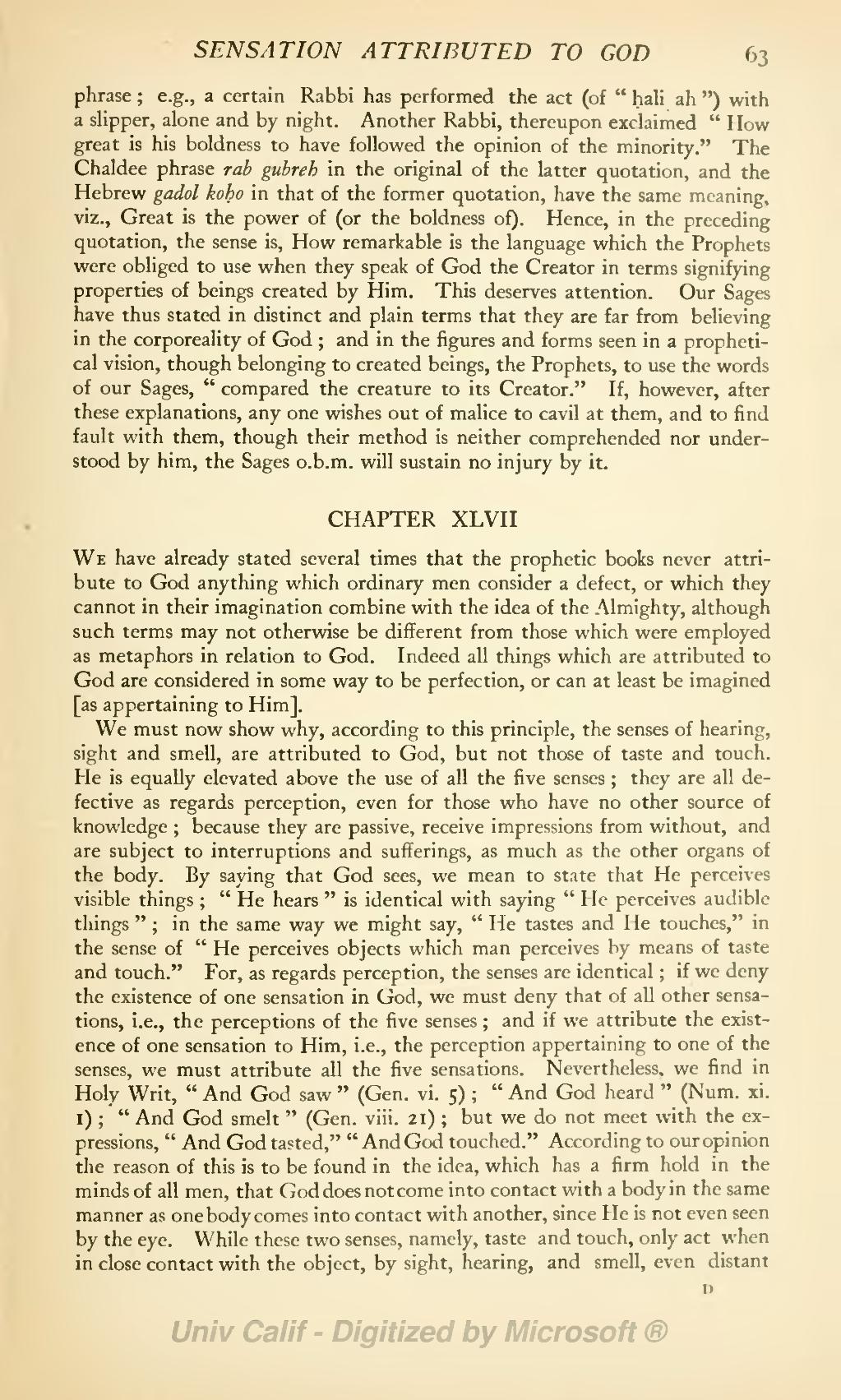e.g., a certain Rabbi has performed the act (of" hali ah" ) with a slipper, alone and by night. Another Rabbi, thereupon exclaimed How great is his boldness to have followed the opinion of the minority." The Chaldee phrase rab gubreh in the original of the latter quotation, and the Hebrew gadol koho in that of the former quotation, have the same meaning, viz., Great is the power of (or the boldness of). Hence, in the preceding quotation, the sense is, How remarkable is the language which the Prophets were obliged to use when they speak of God the Creator in terms signifying properties of beings created by Him. This deserves attention. Our Sages have thus stated in distinct and plain terms that they are far from believing in the corporeality of God; and in the figures and forms seen in a prophetical vision, though belonging to created beings, the Prophets, to use the words of our Sages," compared the creature to its Creator." If, however, after these explanations, any one wishes out of malice to cavil at them, and to find fault with them, though their method is neither comprehended nor understood by him, the Sages o.b.m. will sustain no injury by it.
CHAPTER XLVII
WE have already stated several times that the prophetic books never attribute to God anything which ordinary men consider a defect, or which they cannot in their imagination combine with the idea of the Almighty, although such terms may not otherwise be different from those which were employed as metaphors in relation to God. Indeed all things which are attributed to God are considered in some way to be perfection, or can at least be imagined [as appertaining to Him].
We must now show why, according to this principle, the senses of hearing, sight and smell, are attributed to God, but not those of taste and touch. He is equally elevated above the use of all the five senses: they are all defective as regards perception, even for those who have no other source of knowledge: because they are passive, receive impressions from without, and are subject to interruptions and sufferings, as much as the other organs of the body. By saying that God sees, we mean to state that He perceives visible things: "he hears" is identical with saying "He perceives audible things": in the same way we might say, "He tastes and He touches," in the sense of "He perceives objects which man perceives by means of taste and touch." For, as regards perception, the senses are identical: if we deny the existence of one sensation in God, we must deny that of all other sensations, i.e., the perceptions of the five senses: and if we attribute the existence of one sensation to Him, i.e., the perception appertaining to one of the senses, we must attribute all the five sensations. Nevertheless, we find in Holy Writ, "And God saw" (Gen. vi. 5): "And God heard" (Num. xi. 1): "And God smelt" (Gen. viii. 21): but we do not meet with the expressions,"And God tasted," "And God touched." According to our opinion the reason of this is to be found in the idea, which has a firm hold in the minds of all men, that God does not come into contact with a body in the same manner as one body comes into contact with another, since He is not even seen by the eye. While these two senses, namely, taste and touch, only act when in close contact with the object, by sight, hearing, and smell, even distant objects
